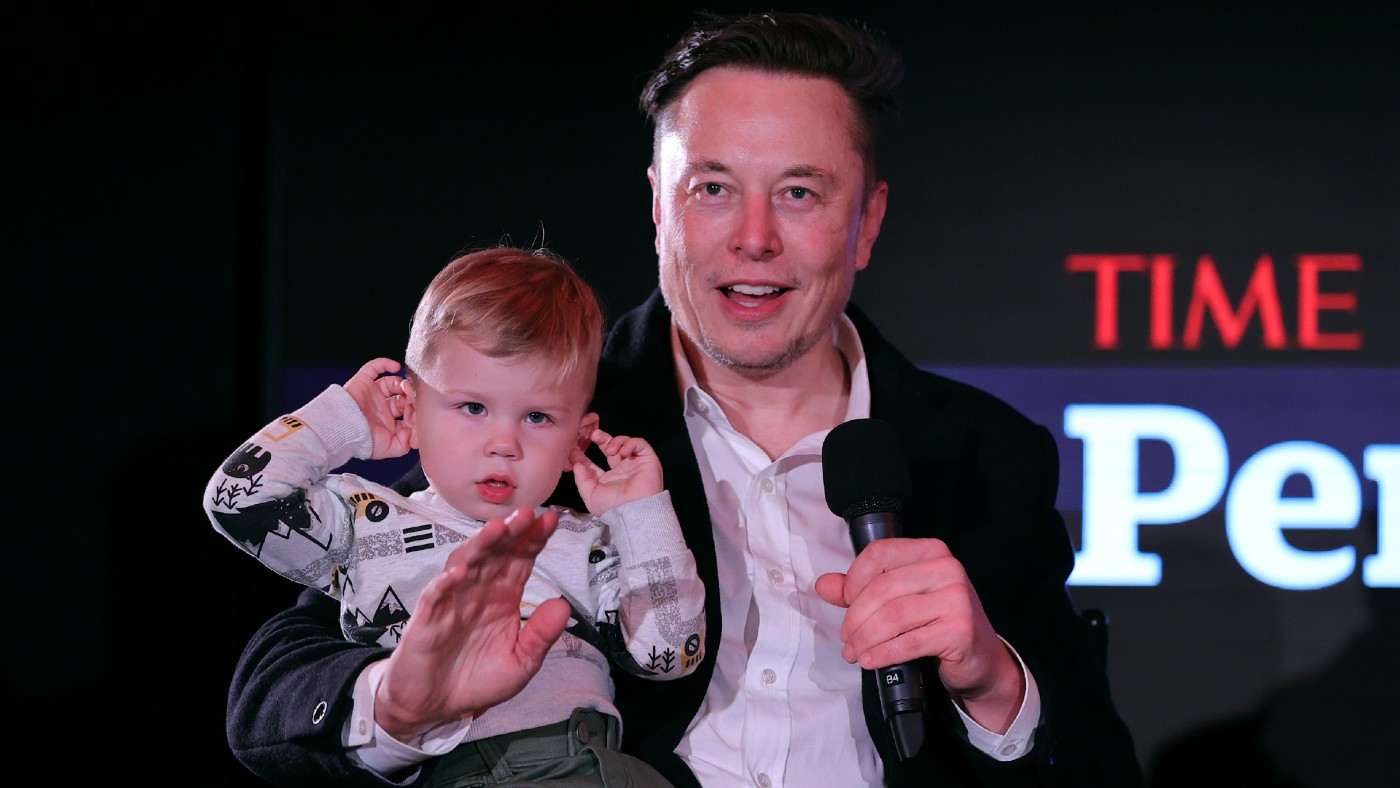Declining births: is civilisation going to crumble?
Last week, Elon Musk expressed concerns about the global population growing out of control

A free daily email with the biggest news stories of the day – and the best features from TheWeek.com
You are now subscribed
Your newsletter sign-up was successful
The richest man in the world wants us to have more babies, said Sam Shead on CNBC. Speaking at a corporate event last week, Tesla and SpaceX founder Elon Musk lamented that too many “good, smart people” were worried about the global population growing out of control.
The real problem, he insisted, was quite the opposite: “There are not enough people. I can’t emphasise this enough, there are not enough people.” “Please look at the numbers,” he told the business audience – “if people don’t have more children, civilisation is going to crumble, mark my words.”
At first glance, the numbers don’t really support Musk’s argument, said Harry de Quetteville in The Daily Telegraph. In the past 200 years, the global population has multiplied from one billion to almost eight billion, and it’s expected to keep growing until the end of this century, when it’s projected to reach almost 11 billion. But those figures mask a very uneven picture.
The Week
Escape your echo chamber. Get the facts behind the news, plus analysis from multiple perspectives.

Sign up for The Week's Free Newsletters
From our morning news briefing to a weekly Good News Newsletter, get the best of The Week delivered directly to your inbox.
From our morning news briefing to a weekly Good News Newsletter, get the best of The Week delivered directly to your inbox.
Many parts of the world, including swathes of Europe, are indeed facing a “population bust”. Romania, for instance, is set to go from around 20 million people today to just 12 million by 2100. Over the same period, Italy’s population is set to shrink by a third.
Longer life expectancy and immigration are currently “topping up the head-count” in many countries, said Peter Franklin on UnHerd, but these compensating factors won’t always make up for birth rates that are way below the replacement level of 2.1 babies per woman. In nations such as South Korea, birth rates are less than half that. Musk is “right to raise the alarm”.
Fertility rates have been falling in the West for a long time, said The Economist, but the “pace of change seems to be accelerating” as other nations follow the same path. Birth rates in all four “BRIC” emerging market economies (Brazil, Russia, India and China) are now below replacement level. “The world’s fertility rate, which stood at 3.5 births per woman in the mid-1980s, fell to just 2.4 in 2019.”
This demographic transition will generate some economic challenges as the world’s population ages, but also some benefits. It will, for one thing, make the task of cutting carbon emissions “less daunting”.
A free daily email with the biggest news stories of the day – and the best features from TheWeek.com
Whatever happens, there’s little the “pro-natalists” can do to stop the trend “short of building a new Gilead”, said Catherine Bennett in The Observer. The reality is that as female education improves, birth rates drop. In advanced economies, most people can’t afford to have big families. We’ll have to leave it to wealthy altruists such as Musk, with his six children, and Boris Johnson, whose seventh child arrived last week, to save civilisation.